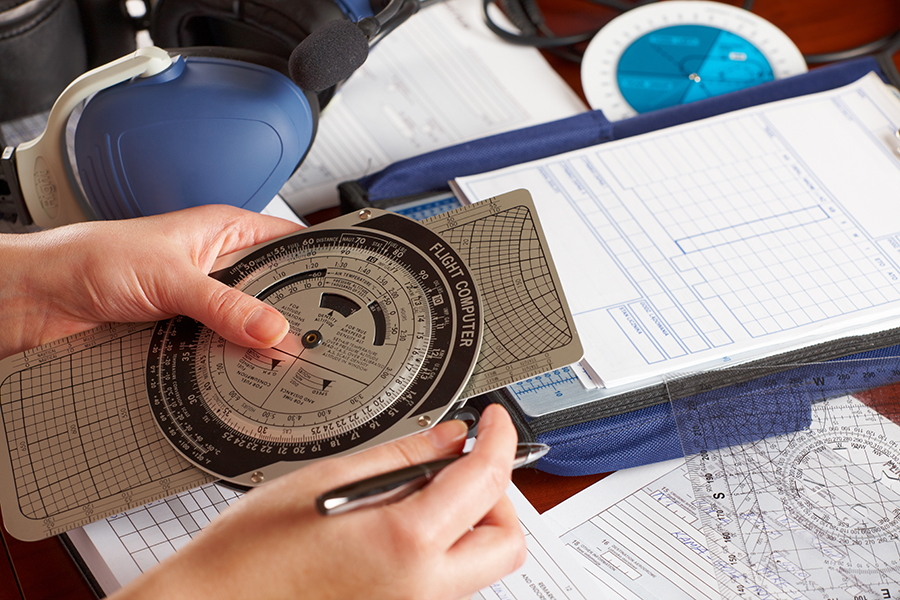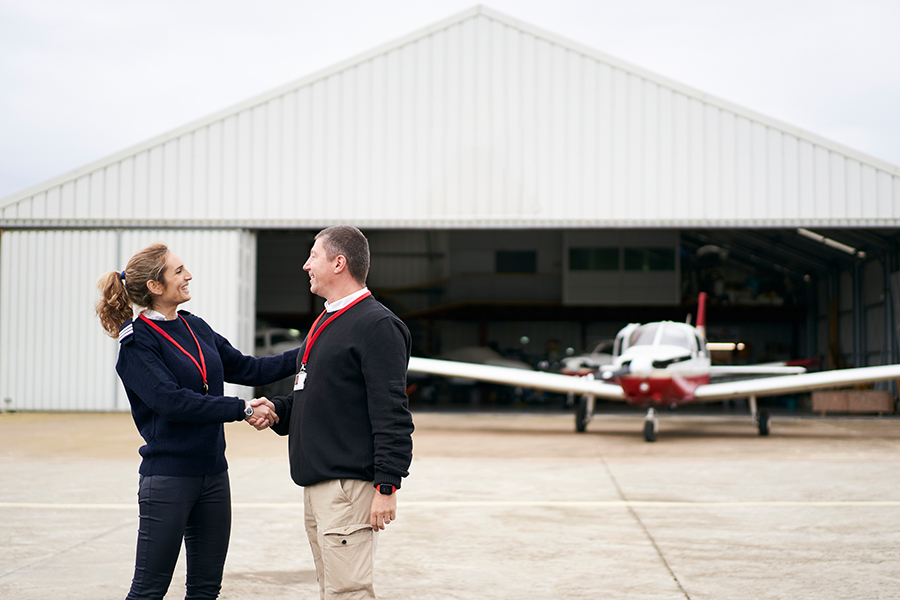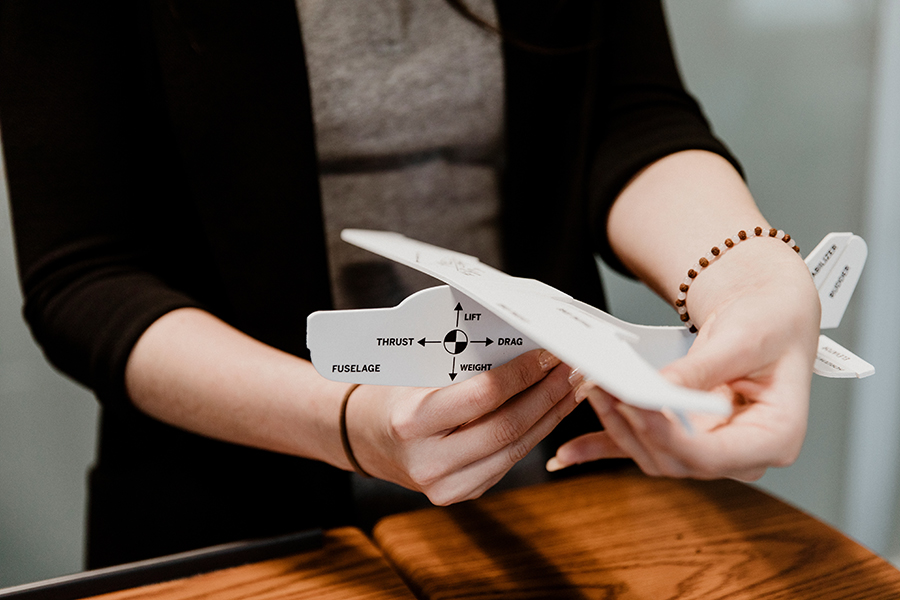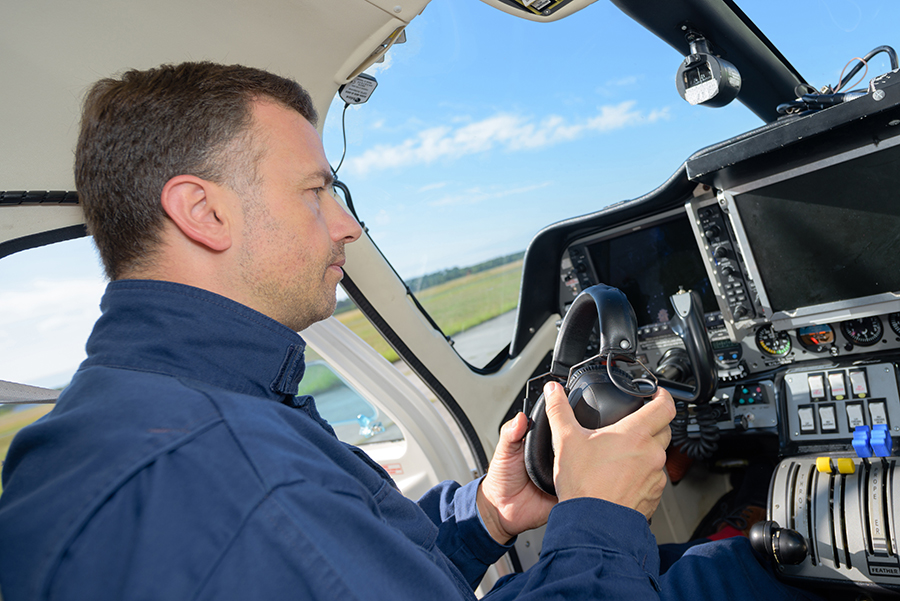-
Key Takeaways
-
Why Choose Weekend Ground School?
- Convenience for Those with Weekday Commitments
- Intensive Focus Allows for Deep Work
- Accelerated Progress Due to Consistent Commitment
-
Potential Challenges
- Balancing Personal Time and Studies
- Intensive Learning Can Be Demanding
- Time Delay Between Learning Sessions
-
How to Set Yourself Up for Success
- Develop a Consistent Study Routine
- Communicate with Your Instructors and Peers
- Prioritize Time Management
- Seek Additional Resources
-
How to Make the Most of Classroom Time
- Arrive Prepared and Ready to Engage
- Take Thorough and Organized Notes
- Participate and Don’t Hesitate to Ask Questions
- Build Relationships with Your Peers
-
Self-Study Strategies for the Weekend Warrior
- Set a Weekly Study Schedule
- Find Your Optimal Study Environment
- Utilize Active Learning Techniques
- Take Breaks and Avoid Burnout
- Leverage Online Resources
- Reflect and Adjust
-
How to Avoid Burnout and Stay Motivated
- Set Realistic Goals and Expectations
- Schedule Time for Non-Aviation Activities
- Practice Self-Compassion
- Connect with a Mentor or Fellow Students
- Remind Yourself Why You Started
-
Finding the Right Weekend Ground School Program
- Consider Location and Commute
- Choose Instructors Carefully
- Evaluate the Curriculum
- Ask About Class Sizes
- Inquire About Additional Support and Resources
-
Additional Resources from Pilot Institute
- Ground School
- Blog
- YouTube
Embarking on the journey to become a pilot is exhilarating, but life is busy. Between work, family, and other commitments, weekday training seems nearly impossible.
That’s where weekend ground school shines—a perfect solution for aspiring aviators with a packed schedule.
In this guide, we’ll explore the benefits and challenges of this popular training option and how you can make the most of it.
Key Takeaways
- The weekend ground school accommodates your packed schedule.
- Weekends enable intensive, uninterrupted study sessions.
- Be mindful of the trade-offs between personal time and studies.
- Cultivate a consistent study routine and active participation in classes.
- Set realistic goals to stay motivated.
- Prioritize location, instructor quality, and additional resources.
Why Choose Weekend Ground School?
Convenience for Those with Weekday Commitments
Work, school, or family responsibilities usually consume weekday hours.
Weekend ground school fits into your schedule, not the other way around.
It allows you to dedicate your time off to pursuing your passion for aviation without disrupting your weekly routine.
Intensive Focus Allows for Deep Work

Weekend ground school is more than just convenient – it’s efficient. You can dive deep into the material by dedicating your weekends to learning.
This focused, uninterrupted time can enhance your learning capability, turning two days of study into a powerhouse of progress.
Accelerated Progress Due to Consistent Commitment
Consistency is critical in flight training.
Attending ground school every weekend creates a regular rhythm of learning and review. This steady, committed approach can lead to faster progress, helping you reach your goal of becoming a pilot in a more streamlined timeframe.
Potential Challenges
Balancing Personal Time and Studies
Weekend ground school means committing your weekends to learning.
This can clash with personal time, family engagements, or relaxation. It’s essential to strike a balance that keeps you energized and prevents burnout.
Intensive Learning Can Be Demanding
The immersive nature of weekend classes can be a double-edged sword. Dedicating full days to complex material might sometimes feel overwhelming, requiring strong mental stamina and focus.
As you become accustomed to these focused sessions, it will become easier.
Time Delay Between Learning Sessions
With a whole week between classes, it’s easy for some of the material to start fading from memory before the next session rolls around.
This delay can make the retention of key information trickier, necessitating consistent review throughout the week.
Setting aside time for self-study during the weekdays is crucial, not just to review the previous weekend’s materials but to prepare for the lessons ahead.
How to Set Yourself Up for Success
Develop a Consistent Study Routine
Success in weekend ground school hinges on regular, disciplined study.
Carve out time during the week to review notes, complete assignments, and engage with the material. This helps bridge the gap between weekend sessions and keeps the information fresh in your mind.
Communicate with Your Instructors and Peers

Don’t wait until the weekend to ask questions.
Stay in touch with your instructors and classmates during the week. This can be through emails, forums, or scheduled virtual meetings. Regular communication fosters a supportive learning environment and helps you clarify doubts promptly.
Prioritize Time Management
Remember, you’re not just a flight student; you’re a person with various roles and responsibilities.
Schedule time for relaxation, exercise, and social engagement on the weekends, too. Use a calendar or planner to organize your week, ensuring that your personal and aviation lives coexist harmoniously.
Seek Additional Resources
There’s a wealth of aviation materials out there—books, online courses, podcasts, and more. These resources can complement your weekend classes, offering different perspectives and deeper dives into complex topics.
Using additional resources is the best way to ensure you perform at your best in the classroom on the weekends.
Our courses at Pilot Institute have helped over 250,000 people become airplane and drone pilots, so we’re confident that we’ll supercharge your ground school.
For more information, click here.
How to Make the Most of Classroom Time

Arrive Prepared and Ready to Engage
Before stepping into the classroom, review your notes and the upcoming lesson’s material. Arriving with a solid grasp of what’s on the agenda allows you to engage actively and ask insightful questions.
Take Thorough and Organized Notes
Don’t just jot down what’s on the board; write notes in a way that makes sense to you.
Use color codes, highlight key points, and make side notes for concepts that need further review. This makes your study sessions during the week more efficient and effective.
Because you only have a limited amount of time during the class, make notes of aspects that you’re not entirely comfortable with. This will allow you to review these sections during the week instead of mindlessly going through everything again.
Participate and Don’t Hesitate to Ask Questions
The classroom is your learning playground. Speak up, ask questions, and participate in discussions.
Your instructors are there to help, and if you’re in ground school with other students, they may have the same questions you do.
Build Relationships with Your Peers
Your classmates are more than just fellow students; they’re a support network. Exchange contact information, form study groups, and encourage each other.
Learning is often more effective and enjoyable when it’s a collaborative effort.
Self-Study Strategies for the Weekend Warrior
Set a Weekly Study Schedule

Plan dedicated study time on your calendar, and treat these blocks like non-negotiable appointments. Consistency is key – make it a habit, not a last-minute cram session.
Find Your Optimal Study Environment
Identify where you concentrate best, whether that’s a quiet room, a local library, or a café with just the right amount of background noise. Make that spot your go-to study sanctuary.
Utilize Active Learning Techniques
Don’t just passively read your notes. Engage with the material through flashcards, practice quizzes, and teaching the content to someone else (even if it’s your cat!). Active learning helps to reinforce and retain the information.
The best way to learn is by recalling information. In other words, practice teaching the content and answering questions, and you’ll find that the information sticks far faster than just reading through it.
Take Breaks and Avoid Burnout

Effective study isn’t a marathon – it’s more like intervals.
Work for focused periods, such as two or three hours, followed by a break. This approach keeps your mind fresh and avoids burnout.
The key during the focus blocks is to avoid all distractions. Turn on “do not disturb,” put your phone in another room, and don’t do anything other than study.
It will take practice (and be painful initially), but how much you’ll get done will blow you away.
Leverage Online Resources
Explore reputable aviation websites, YouTube tutorials, and pilot forums. There’s a wealth of supplementary information out there that can reinforce what you’re learning in class.
Reflect and Adjust
At the end of each week, take a few moments to reflect on what worked and what didn’t in your study routine. Use this reflection to adjust your approach, continuously refining your strategy.
Getting your pilot license while working full-time requires a level of sacrifice (at least temporarily) that many people aren’t used to.
You may need to adjust your study time or have a discussion with friends or family about boundaries and expectations during this period.
How to Avoid Burnout and Stay Motivated
Set Realistic Goals and Expectations
Understand that becoming a pilot is a marathon, not a sprint. Set achievable milestones along the way, and celebrate when you reach them. This keeps your journey manageable and your motivation high.
When setting your goals, remember to account for external factors, such as weather and work obligations.
Schedule Time for Non-Aviation Activities
Life isn’t all about flying. Set aside time for exercise, family, and friends – even on study days.
This balance helps to refresh your mind and maintain perspective.
Practice Self-Compassion
Learning to fly is challenging, and everyone has their struggles. You are going to hit a rough patch, and that’s okay.
Avoid self-criticism and acknowledge that learning is a process. Judge yourself based on your level of effort, not necessarily your progress.
Connect with a Mentor or Fellow Students

Find someone who’s been where you are. Talking to someone who had the same obligations you do and still got their license is a great way to stay motivated.
Regular check-ins with this person can provide support, encouragement, and valuable insights.
Remind Yourself Why You Started
When the going gets tough, revisit your initial passion for aviation.
Whether it’s a childhood dream, a love for the sky, or the thrill of mastering a complex skill, reconnect with that spark.
Your why is your most potent fuel for motivation.
Finding the Right Weekend Ground School Program
Consider Location and Commute
Select a ground school that is reasonably convenient for your weekends. Long commutes can wear on you over time, so balance the program’s quality with the practicality of getting there.
Choose Instructors Carefully

Look for schools with experienced instructors who are passionate about teaching. Reading reviews or asking for recommendations can give insight into an instructor’s teaching style and effectiveness.
The instructor that you fly with might not be the best ground school instructor for you. Feel free to ask the flight school if you can use a different instructor for your ground school.
Additionally, consider instructor availability. You’ll need a ground school instructor that is always available on the weekends.
Evaluate the Curriculum
Review the syllabus in advance. Does it cover all the necessary material logically and comprehensively? Does it incorporate modern technologies and teaching aids? You want a program that sets you up for success.
Ask About Class Sizes
Smaller classes generally mean more personalized attention, but larger classes can offer diverse perspectives at a more affordable price.
Decide what you prefer and choose a program that aligns with your comfort level.
Inquire About Additional Support and Resources
Does the school offer extra tutoring sessions, flight simulator time, or study groups? These additional resources are valuable as you work toward your certification.
Additional Resources from Pilot Institute
Ground School
Consider enrolling in our comprehensive private pilot ground school course. This course will take you through every topic necessary, preparing you thoroughly for your exams and real-world flying.
Blog
Our blog is a treasure trove of information for aspiring pilots.
Regularly updated with articles covering a wide array of topics, our blog offers insights into the latest industry trends, in-depth explorations of flying principles, practical tips for students, and much more.
Whether you’re looking for tips, explanations of complex aviation concepts, or updates on FAA regulations, our blog is a reliable and up-to-date source that speaks directly to your experiences and needs as a future pilot.
YouTube
Our YouTube channel contains informative videos on a range of topics. These videos are perfect for visual learners and offer clear, detailed explanations of complex concepts.



